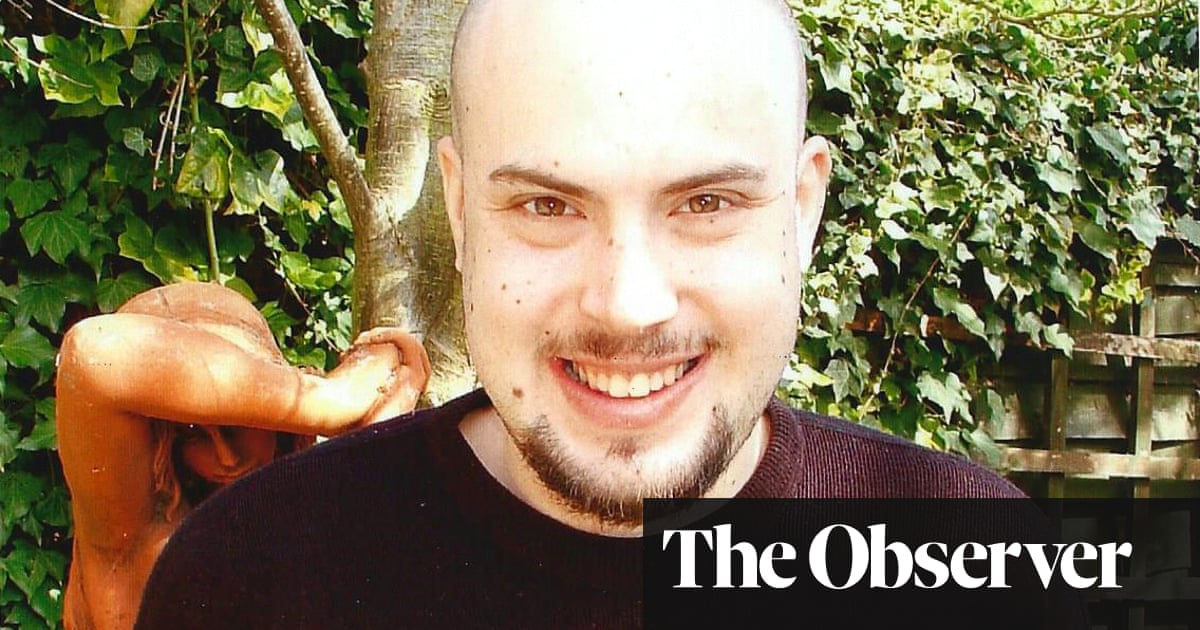Smacking a child is just an act of violence. Why do England and Northern Ireland still allow it? | Frances Ryan


When a child is scared of their parents, they can spend a long time plucking up the courage to talk. I learned this during a decade of volunteering as a Childline counsellor. There is a 20-second period, in between saying your name and waiting for them to share theirs, that is the most silent the air can ever be. You could hear a pin drop or just a caller’s breath echoing on the receiver. In that moment, a young girl who has been slapped by her father is deciding whether to ask for help or to hang up and try again to form the words in a week or two.
I thought of this silence as I read calls from leading doctors to ban parents from smacking their children in England and Northern Ireland. Unlike in Scotland and Wales – where over the past four years the Victorian-era law that allows it has been overturned – it is still legal for a parent or carer to hit, smack or slap their child if it is a “reasonable” punishment.
If that sounds dangerously vague, it’s because it is. In theory, the Children Act 2004 offers some protection, making it unlawful to assault a child causing actual or grievous bodily harm, or cruelty. But the Royal College of Paediatrics and Child Health (RCPCH) warns that the current law creates a loophole where “some forms of physical punishment may be lawful and some are not”.
“I see children who have been physically punished with a smack or a slap [or] sometimes with an implement. They can be hit on their leg, arm, back or bottom,” said Prof Andrew Rowland, a consultant paediatrician and the college’s officer for child protection. “I’ve seen children who have been hit with a belt or blunt implement from the kitchen, like a spoon, or cables from a phone or laptop charger that’s been used as a whip.”
If this is what a legal loophole looks like in practice, it should make every adult wince. The issue isn’t simply that the “grey area” of the law leaves parents – and the doctors and teachers with a duty to protect them – unsure of what level of physical discipline is unlawful. It’s that even in its mildest form, smacking is still an act of violence – an act of violence administered by an adult towards a child, one often half their size.
We are in the perverse situation in which adults are protected from all forms of violence under the law, but if it is a child who is struck it can be justified or even romanticised. As the Reform MP Lee Anderson told GB News: “I was smacked. And I look back fondly on my thrashings.”
In reality, using physical force on a child is not legitimate or even rational discipline. Research shows that, mostly, when parents strike their children, it’s because they have lost control. It is no surprise that in some cases this violence escalates. Children who have been smacked by their parents are reportedly twice as likely to be on the receiving end of serious physical assault and abuse.
Of course, not every parent who smacks their child is abusive. The majority are no doubt otherwise loving parents, many of whom are repeating the behaviour their own mum or dad raised them with. “It never did me any harm” is a common response to critics of corporal punishment, but research consistently shows that in many cases it does. Far from improving their behaviour, smacking a child increases the chances of having difficult relationships with family as well as them being aggressive or even sexually violent later in life.
In the short term, smacking can have a significant impact on a young person’s wellbeing. Children who experience physical punishment are nearly three times more likely to develop poor mental health than their peers, according to a review of studies by the RCPCH. Childline tells me that between April 2022 and March 2023 the helpline delivered more than 3,500 counselling sessions on physical abuse and almost 800 of these mentioned physical punishment. To a child, being hit by a parent rarely feels like just a smack.
It should be possible to have a sensible conversation about this, and yet discussions of slapping often descend into cries of “nanny state”. Rights, though, are not absolute. Whether it’s wearing a seatbelt or the government’s current drive to ban smoking for future generations, the state routinely interferes in our liberty in order to reduce harm. That’s especially the case with children – the question is only ever where the line between freedom and safeguarding sits. Even those on the right who strongly defend the right to smack have no qualms about nudging parents’ behaviour when they want to: from the two-child benefit limit to tax breaks for married couples.
If the government fails to act, reform could still be on its way. The RCPCH wants all political parties to include a law change in their election manifesto and Labour would be smart to do so. The public overwhelmingly supports a ban: a 2023 YouGov poll found 67% of people in England think physically disciplining a child is not acceptable. Besides, England and Northern Ireland are in many ways outliers internationally. Sixty-five countries have already banned smacking and 27 more have committed to doing the same.
Social progress is a slow but in many ways inevitable force. From gay sex and marital rape to child labour, what society once judged as right or wrong does not stay so for ever. A change in the law is often the legal system catching up with what the public has already established as the new norm. In this way, the outdated notion that a parent has the right to “reasonably” assault their child is already a relic of the past. In a decade or so, we will surely look back on smacking and wonder not why it was banned, but why exactly we permitted it for quite so long.
Source link




